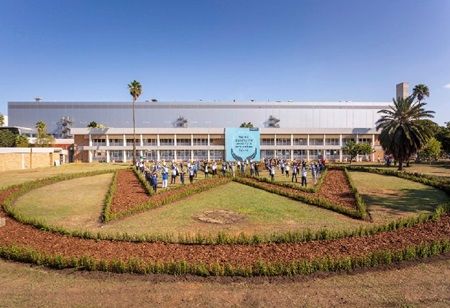As part of a major push to fortify educational ties with Southeast Asia, Prime Minister Narendra Modi announced Friday that India would almost double the scholarships for ASEAN students at Nalanda University. India today announced the decision during an address by Prime Minister Narendra Modi at the East Asia Summit (EAS) held in Laos, where he again underlined the importance of the EAS mechanism and thanked EAS Participating Countries for their support in reviving Nalanda University.
Part and parcel of India's larger initiative to reclaim its rich educational legacy and promote them, the revival of the historic seat of learning, Nalanda University-the one which attracted scholars from all four corners of the world- is one thing. Various measures the Indian government has undertaken are for enhancing the stature and the capabilities of the university by way of financial support and infrastructure development in establishing Nalanda as a pre-eminent institution in higher education, drawing scholars and students from across the world into the tapestry of the academic environment there.
Such orientations ensure that the university lays emphasis on research not only in some but in multiple fields of expertise in line with national objectives on achieving innovative changes and knowledge creation. This means the university will have increased attractiveness to double its scholarship to ASEAN students, hence more academic collaboration and cultural exchange among the universities in the region.
On the resurrecting of Nalanda, Prime Minister Modi said, "This is not only an academic exercise but a strategic activity to propel India's grand history in the new global knowledge economy. So far as the revival is good for scholars, it is good for tourists also who will be encouraged by such knowledge acquirers".
In his summit speech, Modi underscored an effective role of ASEAN in the architecture of the Indo-Pacific region and placed it in line with the vision for the Indo-Pacific by India and cooperation in the Quad. He called for making peace and development with a free, open, inclusive, prosperous, and rules-based Indo-Pacific region. Modi sought a development-oriented approach rather than an expansionist one that echoed the ASEAN Outlook on the Indo-Pacific.
These discussions with leaders also covered the major issues of regional and international peace and stability and prosperity in the Indo-Pacific region. Modi mentioned the severe implications of conflicts on the Global South and moved for dialogue and diplomacy as paths to peaceful resolutions, pointing out that no solutions could be found on the battle field.
Besides, Prime Minister referred to the terrorist threats and cyber challenges along with maritime security as challenges before nations and urged these nations to unite in combating these issues at the global level. He thanked the Prime Minister of Laos for a successful summit and extended best wishes to Malaysia as the new Chair of ASEAN, expressing that India would back them fully.
In conclusion, Modi invited the nations of the EAS to participate in a conclave for the heads of higher education scheduled to be held at Nalanda University and thus strengthening India's commitment to improving its landscape of education and international collaborations.

